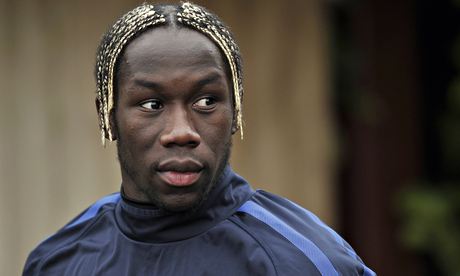 Peter Firmin, the creator of Bagpuss, outside the window of his house which doubled as the shop window in the series, January 2014.
Peter Firmin, the creator of Bagpuss, outside the window of his house which doubled as the shop window in the series, January 2014.
Chris Britcher Sunday, February 2, 2014
4:37 PM
To mark Bagpuss' 40th birthday, we meet Peter Firmin and Oliver Postgate's son Daniel
1958 - Alexander The Mouse (ITV)
1959-63 - Ivor the Engine (ITV)
1959-65 - Noggin the Nog (BBC)
1960-65 - Pingwings (ITV)
1966-67 - Pogles' Wood (BBC)
1969-72 - The Clangers (BBC)
1979-80 - Noggin the Nog (BBC)
1974 - Bagpuss (BBC)
Sometimes you feel a little like you're sat in a bizarre dream.
I'm sat around a kitchen table in a very pleasant farmhouse just outside Canterbury, chatting to the son of Oliver Postgate - the man whose fertile imagination brought us some of the nation's most cherished children's TV characters.
And as we do, Peter Firmin - the man whose talent brought those creations to life - emerges and plonks the original Bagpuss onto the table. Not places. Plonks.
It's a bit like trying to carry on a conversation when the Queen walks into the room. You can't help but keep glancing in their direction and wonder if you'll get to meet her.

Peter Firmin, original Clangers, and first sketches for Bagpuss
While that distinctive pink cat perches beside me, the odd sight of the skeleton of one of the original Clangers is put into my hands - the knitted skin and stuffing long since seen off by a gnawing mouse.
But then this is no normal place I find myself in; this is to those who grew up with children's television in the 1970s and 1980s what Willy Wonka's factory is for the chocoholic.
Because this is the home of Peter Firmin and his wife Joan. For more than 50 years they have lived in Blean, watching the village - at the midway point between Canterbury and Whitstable - boom as housing estates grew and the nearby school expanded.
Alongside the farmhouse are a gaggle of unassuming buildings... yet they bore witness to the conception, creation and birth of some iconic characters.
Bagpuss, the Clangers, Ivor the Engine, Basil Brush - they all came to life here and much more besides.
The old cow shed was the workshop where Mr Firmin would toil, creating sets, puppets and drawings which would stamp themselves into the memory of generations of children. An old pig shed played its part too.
A fine old barn once played host to the alien landscape of the Clangers and Pogles' Wood; the house and the farmyard was the setting for 1960s puppet series the Pingwings.
At the back of the house is the very window used as the shop front in Bagpuss. And for a few glorious moments I hold the fluffy pink cat which Emily (Mr Firmin's youngest daughter who featured in the series) held in the show - the other is on display at the museum in Canterbury. They say you should never meet your heroes, but on this occasion he didn't disappoint.
And it is Bagpuss which brings us here to this holy ground.
It was 40 years ago this very month the old, saggy cloth cat first appeared on our screens.
He appeared for just 13 episodes - the run starting on February 20, 1974, and being all over three months later. They would never make another.
But the episodes which exuded warmth and fine storytelling, would forever cement his place in popular culture; capturing the imagination of both children and their parents through countless repeats and endless adulation.
"Bagpuss will never die," reflects Mr Firmin, the man whose handiwork created the legendary cat.
"Because of all the toys and merchandise he's become almost like a national treasure, hasn't he?"
So surely there's been a temptation to make just a few more episodes?
"We've always said we'd never let anyone remake Bagpuss," Mr Firmin replies, "maybe one day in the future, when I'm dead and gone.
"No one has ever come forward with an idea - people have always asked - but Oliver always used to say 'over my dead body' and I agree with him."
Mr Postgate died in Broadstairs in December 2008. He was 83. His rights to Smallfilms, Mr Postgate's production company, shifted to his son, Daniel Postgate - himself a successful illustrator and scriptwriter in his own right.
Daniel is 50 this year - although has a youthful look which defies his years - and finds himself now replacing his father in working closely with Mr Firmin as they supervise the re-birth of the Clangers which will make an appearance on both sides of the Atlantic next year (see box).
Don't expect to see Bagpuss receive the same treatment though.
"Bagpuss was such an individual thing it would be very difficult to remake it," says Mr Firmin. "We made it in 1974 but it had an Edwardian feel to it because of the way we filmed it.
"It's very English and I don't think it would translate overseas."
Dan Postgate is perhaps a little more open to the idea - although not necessarily for the UK market.
He explained: "An Amercian producer wanted to set it in America, I think if you set it in somewhere like Cape Cod, with those weather boarded shops in New England, had a wooden Native American in the corner, I think the characters would translate well to the American audience in that way.
"But it would be different and away from Smallfilm's style. But they've never seen it in America, and they probably never will.
"I think everyone knows Bagpuss so well over here that I think it would be considered not quite right to muck about with it."
Adds Peter Firmin: "It's a bit like Winnie the Pooh - and what Disney did to it. It was so different to the original EH Shepard drawings that many people were up in arms about it.
"But we had no inkling Bagpuss' popularity would last so long.
"Certainly at the time we were making it, I felt we were doing well.
"We had done the Clangers, we were writing books, they were still showing Pogels' Wood and there was an amazing concentration of work we were involved in.
"Bagpuss was like the culmination of everything we'd done before - it became the pinnacle of what we did. It was our best thing ever and I really enjoyed making them."
Peter Firmin first met Oliver Postgate back in London in 1958 when he was 30 and trying to establish a name for himself as an illustrator, with varying degrees of success.
In terms of the impact on children's television, that meeting was akin to Paul McCartney and John Lennon first sitting down and deciding to write some songs together on the world of pop music. Things would never be the same again.
Today, Mr Firm is a remarkably sprightly 85 and thoroughly entertaining company as he recalls that first meeting and how the partnership would develop.
"I had been trying to freelance as an illustrator after leaving a studio I'd been working in, in Bond Street," he explains. "Then Oliver came along looking to find someone to do the drawings of some live animation he was working on in the studio. Oliver was working in TV and thought he could do so much more in children's television.
"He'd been referred to me by the Central School of Art, where I'd been doing some teaching. He had asked if they could recommend someone hard up enough to do a lot of work for little money.
"I reluctantly agreed. I thought as it was only six weeks I'd give it a go. I thought television was a bit crap - and it was back then. Children's television was all live, with string puppets and crude animation.
"I found I could work things with cardboard mechanics and Oliver brought his camera and taught himself to do animation so between us it worked well."
Their first collaboration was on Alexander the Mouse, a show Mr Postgate had created and which used a series of magnets to allow the characters to move. Mr Firmin was drafted in to provide the backgrounds.
It impressed TV bosses enough for Mr Postgate to form Smallfilms - the production company which would become synonymous with a host of much-loved shows.
Contrary to common belief, Mr Firmin was never a shareholder in the venture. Instead, he simply kept ownership of all the characters he created. In essence, it meant that Smallfilms always needed the artist's seal of approval to progress. A situation which remains to this day.
He explains: "Oliver would say at the beginning of the show if I'd make the puppets and agree a fee, and then I'd do it. Sometimes it would be a huge amount of work, some not so much. But we just did it."
Before long, Mr Firmin and his family had moved out of their home in Battersea in pursuit of the good life in the countryside and for their children to attend a country school. After visiting a friend in Blean, Mr Firmin strolled past a farmhouse and instantly fell in love with it. A few months later they moved in.
Within a year, Mr Postgate joined them in Kent - first living in one of the fine, tall, homes on the seafront in Whitstable and then taking over the site of an old pub in Blean itself.
It allowed their creative talents to flourish and both their homes and family became involved in the productions - Joan Firmin knitting the original Clangers, Emily Firmin, their daughter, appearing as the young girl in Bagpuss, and their home used as the backdrop to many of them.
"It was only our faith in ourselves that gave us the confidence to keep making the programmes," Mr Firmin reflected this week.
"Nothing could have happened without Oliver. He was the sort of person who could really see things, go for it and do it. "He was hugely inventive; using Meccano to make cameras and equipment that worked for animations.
"He was great like that. I can always draw things, but I'd not have the faith to do those sorts of things. But the two of us worked together well.
"Ideas flowed between us and that was really why we had faith to go on."
In 1969 they created the Clangers and in 1974 they reached their commercial peak with Bagpuss.
Noggin the Nog kept the success going and there was a period of a decade where it seemed one of their shows was on pretty much each and every day.
Mr Firmin and Oliver Postgate both capitalised on their successes with at one stage their income going up so much that the taxman became convinced Mr Firmin had been concealing previous gains.
But it was when, in 1999, Bagpuss was named the UK's favourite children's television programme in a BBC poll, that they enjoyed perhaps their biggest windfall.
"When Bagpuss won that poll it immediately boosted the sale of the videos. And then the merchandising suddenly shot up."
Mr Firmin and Smallfilms retain all the rights to their characters but granted the merchandise rights to a company called Coolabi which, in turn, strikes deals to produce a range of goods for the likes of Bagpuss and the Clangers.
Adds Mr Firmin: "Suddenly everyone wanted to make Bagpuss toys and it went crazy.
"They made vast quantities and Bagpuss turned up everywhere."
For Mr Firmin, it provided a vital boost to his pension. Oliver Postgate, however, a confirmed socialist, found the influx of funds more difficult to square away.
Adds Mr Firmin: "There was so much cash coming in after that, that's why Oliver supported the Romanian hospice.
"It was an embarrassing amount of money and he wanted to do something good with it. Someone approached him and he built a wing for them."
Organised by the Hospices of Hope in Tunbridge Wells, the contribution has helped thousands of young children.
For Mr Firmin, the money has allowed him to stay in his beloved farmhouse and continue to work on a wide variety of artistic endeavours.
His daughter Emily, herself fast approaching 50, now lives and works in Whitstable as a successful artist - her papier mache creations are a familiar sight in the town.
But the legacy of the Postgate and Firmin families stretch far further than this part of east Kent.
They live on in the hearts and minds of millions who grew up with their creations, whose childhood was in many ways defined by the fruits of their imaginations.
And for that we owe them a debt of gratitude. Or, at least, I do.
Basil Brush AMID all the success of Bagpuss and the Clangers, it is often overlooked that Peter Firmin created another cornerstone of 1970s and 1980s TV - Basil Brush. What's more he continues to own the right to use the puppet and has been making a tidy sum every time he appears on TV. He was created for a series called The Three Scampies about an out-of-work circus act which featured Howard Williams as the circus owner and Ivan Owen animating and voicing Basil. Explains Mr Firmin: "I made Basil Brush in 1963 and I've still got a little share in him. "They had an idea for a programme which was like an out of work circus act and wanted two tiger cubs to start with. "But when they asked me to make the puppets, I pointed out tigers would be the wrong shape for glove puppets. "So I said what about we did a fox and a hedgehog, with the fox being like Terry Thomas; a hunting, fishing, shooting fox. So I made the puppets. "I didn't name them, but they couldn't afford to pay me for making the puppets because they were so mean, so they said they'd pay me £6 for each programme; but of course those puppets remained my property so they were renting it from me. So I made my money every time they showed him. "So Basil has been very good to me over the years." The Clangers A few months after Bagpuss first appeared on our screens, the Clangers were bidding farewell. First launched in 1969 they ran for two series - some 27 ten-minute episodes in total - finishing in 1972. A bizarre concept back then - but capitalising on the appetite for space exploration following the Moon landings - the Clangers were a family of mouse-like creatures living on a little planet and communicating in whistles. Although popular, they never reached the levels of Bagpuss - but are set for a revival which could see them make a splash on both sides of the Atlantic. A new series is under way which will air in 2015 on both US digital kids' channel Sprout - providing access to some 130 million households - and the BBC's Cbeebies. Both Mr Firmin and Dan Postgate are executive producers on the project - working together for the very first time. Explains Mr Firmin: "I was becoming an illustrator again when the new Clangers thing brought Dan and I together being involved in this new series. "Oliver and I owned everything - we kept the rights to the characters. We had merchandising agents but they didn't have publishing or filmmaking rights. It is only since Coolabi expanded that we cautiously allowed them to develop the Clangers." Adds Dan Postgate: "We were remastering Bagpuss and were talking about making it an international thing when I thought it would be better to do the Clangers. "They don't speak and they're aliens, so there are no cultural issues. You could sell them internationally, just with a local narrator. "But there was a problem with the quality of the original Clangers and it was perceived as slightly on the slow side for modern children. "Then a chap came over from America and he said he'd like to do the Clangers and that all kicked it off. "The question is, do you want to leave things and let them dwindle and disappear, which would happen with the Clangers, or inject some new life into it and save the original? "This is not a remake, it's carrying on after a 45-year break really so all in all it sounded like the most sensible thing to do. It's a homage to both Oliver and Peter." Adds Mr Firmin: "Dan's writing the scripts and I'm doing sketches when they need characters vetted and the costumes right. "We went up to see the first sets of Mother Clanger's garden - and they'd got it totally wrong. So I did this sketch and the next time I went up they had turned by sketch into a model brilliantly - they did a really good job." Adds Dan Postgate: "They are really good in that respect. I thought as this big multi-million dollar company they'd just pat us on the head and throw us some biscuits now and again - but they they've been really good. "The Clangers are still knitted and it's looking good. The first 26 episodes should air next year. It will be interesting to see what the Americans make of it." Oliver Postgate DESPITE his remarkable success, Oliver Postgate had a life-long battle with both his creativity and his desire to make a difference. A committed socialist, he was an outspoken campaigner in the fight against nuclear weapons, appearing and speaking at rallies for CND. Not only a talented story writer and programme maker, he was also an inventor of gadgets and continued to create gadgets late into his life. In one of his final interviews he said of himself: "I can't ever think in terms of being happy. I can get pleased and excited, but I'm perpetually worried because my imagination is completely unbridled. When there is nothing for it to tap into I feel quite lost. I'm like a captain with no ship." Born into a family of some influence in 1925, his father was the writer and historian Raymond Postgate, who founded the Good Food Guide. His mother was Daisy Lansbury, daughter of former Labour Party leader George Lansbury. In 1913, she had helped suffragette Sylvia Pankhurst evade police capture by disguising herself as her. She was the aunt of the famous actress Angela Lansbury - who, in turn, was Oliver's cousin. He was a stage manager for TV company Associated-Rediffusion in 1957 - working on shows for ITV - when he became convinced he could do better in the children's department. He met Peter Firmin and the rest is history. However, his socialist roots sometimes sat uncomfortably with the money he would go on to make. His son, Dan - one of three boys Oliver had, in addition to three step-children - explains: "Making money wasn't really top of his list. "He had offers to do advertising; for example, they wanted to use Noggin the Nog for when the Tories were selling off the water companies. He said they could as long as he could say it was public theft. He was a die-hard socialist. "Even when he was quite rich he just lived in a one-bedroom flat in Broadstairs. "If he got money he would just give it away to charity. "His father was an old-fashioned type of parent and Oliver always wanted to impress him. "His brother was very clever and I think Oliver wanted to try and emulate him. He always thought his brother was more important but it wasn't true. "It was a funny type of fame for my father. In later life he was very much involved in writing - very involved in the anti-nuclear campaign - very involved in worrying about the planet. He was always very imaginative and creative." His voice was familiar to millions as narrator of many of the programmes he created. Upon his death, columnist Charlie Brooker described his voice as "no more calming
sound of music remake in the world than the voice of Oliver Postgate" adding "with him narrating your life, you'd feel cosy and safe even during a gas explosion". He died at a nursing home in Broadstairs in 2008. He was 83. DAN POSTGATE Describing himself as a freelance author, illustrator and cartoonist, Dan Postgate is also the heir to the Smallfilms empire, created by his father. The father-of-two lives and works in Whitstable - just down the road from where he grew up in Blean. He was 10 when Bagpuss was made, and remembers watching his father at work, something he described as "very boring" because of the stop-animation nature of the work he did. After leaving school he worked as a chef - including a stint working at a studio being used by rocker Ozzy Osbourne and his band "which involved lots of hi-jinks", he remembers. But it was creative endeavours where his future lay. Not that having a famous father made life easy for him. "Some people seem to think that having the Postgate named opened doors," he explains, "but that's not the case at all as you just have to be good at your job." He enjoyed award-winning success with his Smelly Bill book and has published others including Kevin Saves The World and Engelbert Sneem. He also did cartoons for the business pages of the Sunday Times. Today he is heavily involved with the new series of the Clangers, where he is executive producer and scriptwriter.



 Image description: William hill mobile
Image description: William hill mobile 






















 Peter Firmin, original Clangers, and first sketches for Bagpuss
Peter Firmin, original Clangers, and first sketches for Bagpuss 